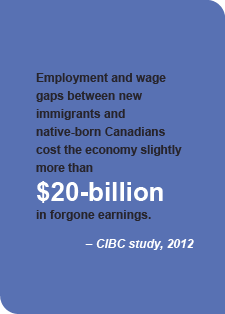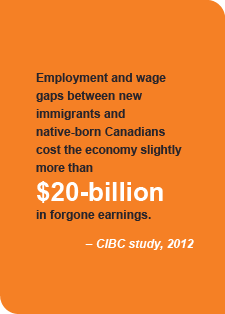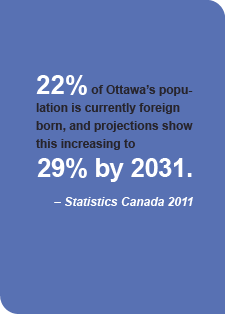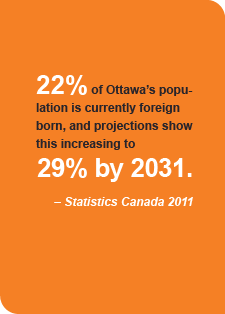Keynote Address: Senator Ratna Omidvar
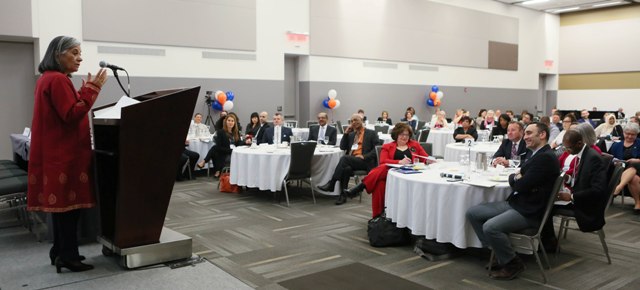 One of the greatest challenges coming to a new country is learning the unwritten rules, began Senator Ratna Omidvar, Keynote speaker at the HIO Summit on March 8, 2017. When Omidvar came to Canada she said she quickly learned about the cultural rules around respecting people’s personal space and what questions were impolite to ask. On her third day in Canada she was advised to change her name or she wouldn’t get a job. She was a German teacher from India, who had just come to Canada from Iran as a refugee. Like most immigrants, this was when her story of reinvention began.
One of the greatest challenges coming to a new country is learning the unwritten rules, began Senator Ratna Omidvar, Keynote speaker at the HIO Summit on March 8, 2017. When Omidvar came to Canada she said she quickly learned about the cultural rules around respecting people’s personal space and what questions were impolite to ask. On her third day in Canada she was advised to change her name or she wouldn’t get a job. She was a German teacher from India, who had just come to Canada from Iran as a refugee. Like most immigrants, this was when her story of reinvention began.
Omidvar is now a Canadian Senator and published writer. She has also worked in the non-profit sector and as a professor at Ryerson University.
“Names matter,” she said, explaining that words send signals to the brain that affect how we perceive them. When Omidvar came to Canada she did not change her name, because it was as much her identity as the colour of her skin. It is evident from research that names do matter when seeking employment. She now encourages employers to anonymise job application processes, ensuring the candidates have anonymous names and schools of education. She asks employers to only look at the competencies of the candidates. This experiment was done in Germany and found that the anonymous process significantly improved the success rates of immigrant and women applicants.
“If you want to sell for a diverse market, you need to hire for it,” Omidvar said, emphasizing the need for acknowledging unconscious biases and understanding your audience.
According to StatsCan, almost half of Canada’s population will be immigrants or children of immigrants by 2036, accounting for much of Canada’s workforce. Omidvar said this means discussions around integration and leveraging talent of immigrants are vital.
Omidvar summed up the situation of immigrants integrating into Canada society in a visualization:
“It is a big house. It has a strong roof to keep out those who will take advantage of us. It doesn’t matter if you came yesterday or ten years ago, we all have a place in this house. It has a big bright interior, a warm fire, and when immigrants come into this house in the beginning, everything is really new to them. At the beginning they are hesitant and sit on the end of their chair, but eventually things become more comfortable. They figure out how the dishwasher works and how to pay the bills, save money. They take on some of the mortgage payments. And then one day they decide to paint the house another colour and rearrange its furniture, because after all, it’s their house too.”
Omidvar said she is an advocate for diversity and inclusion but will not label herself as a senator for immigrants and refugees. Demographics is destiny, she said and “Canada will succeed when its immigrants succeed in it.”


